Since August 25, 2017, more than 600,000 Rohingya have fled to Bangladesh to escape the violence in Myanmar. Most of the refugees are women and children, with many pregnant women giving birth after reaching Bangladesh. Pregnant 18-year-old Hazera Begum walked for five days to reach Cox’s Bazar district with her family, giving birth to her daughter, Kismat Ara, in the Kutupalong refugee camp.
Born a Rohingya, and a refugee

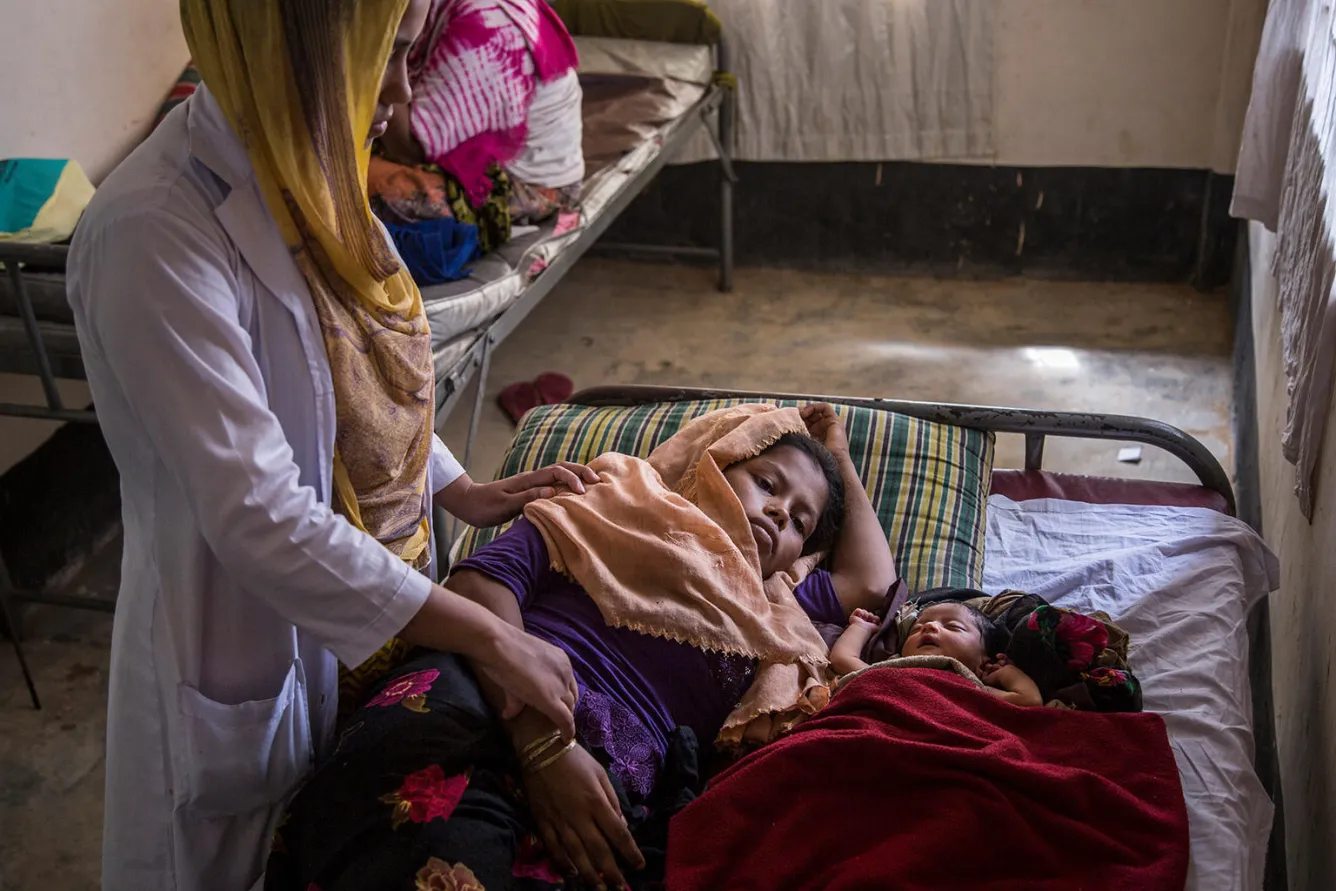
Hazera, who is from a village in Maungdaw township in troubled Rakhine State, recuperates next to 2-day-old Kismat, at the UNICEF-supported birthing centre in the Kutupalong camp for Rohingya refugees, in Cox’s Bazar district. “I was in so much pain. I feel safe here,” said the exhausted teenager.
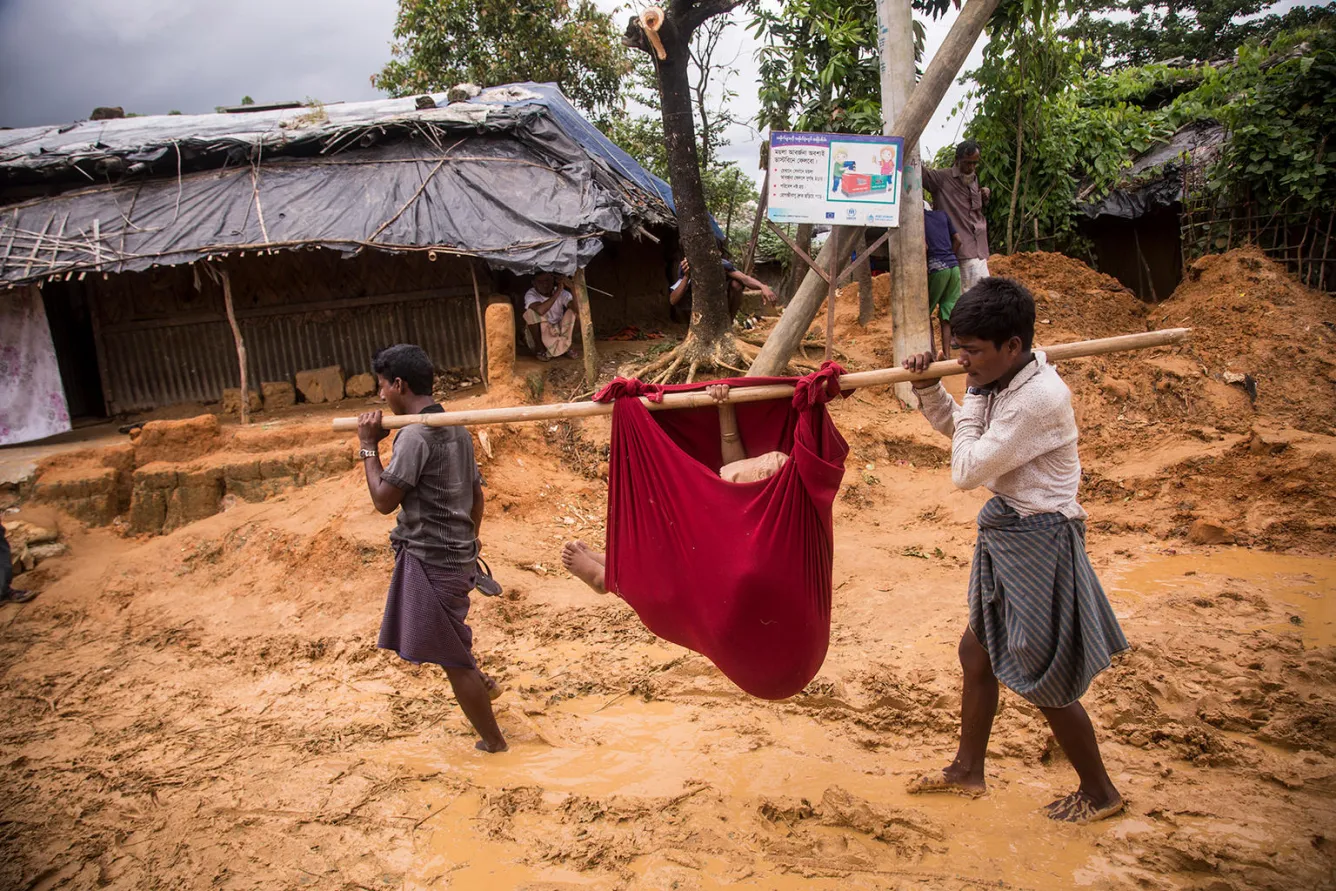
Hazera is still too weak to walk the 4–5 kilometres back to the family’s shelter when her husband, Mohammad Hassan, comes to take her and their 4-day-old daughter , who has been born a refugee, home. Mohammad and Hazera’s younger brother carry Hazera from the health centre in an improvised stretcher.
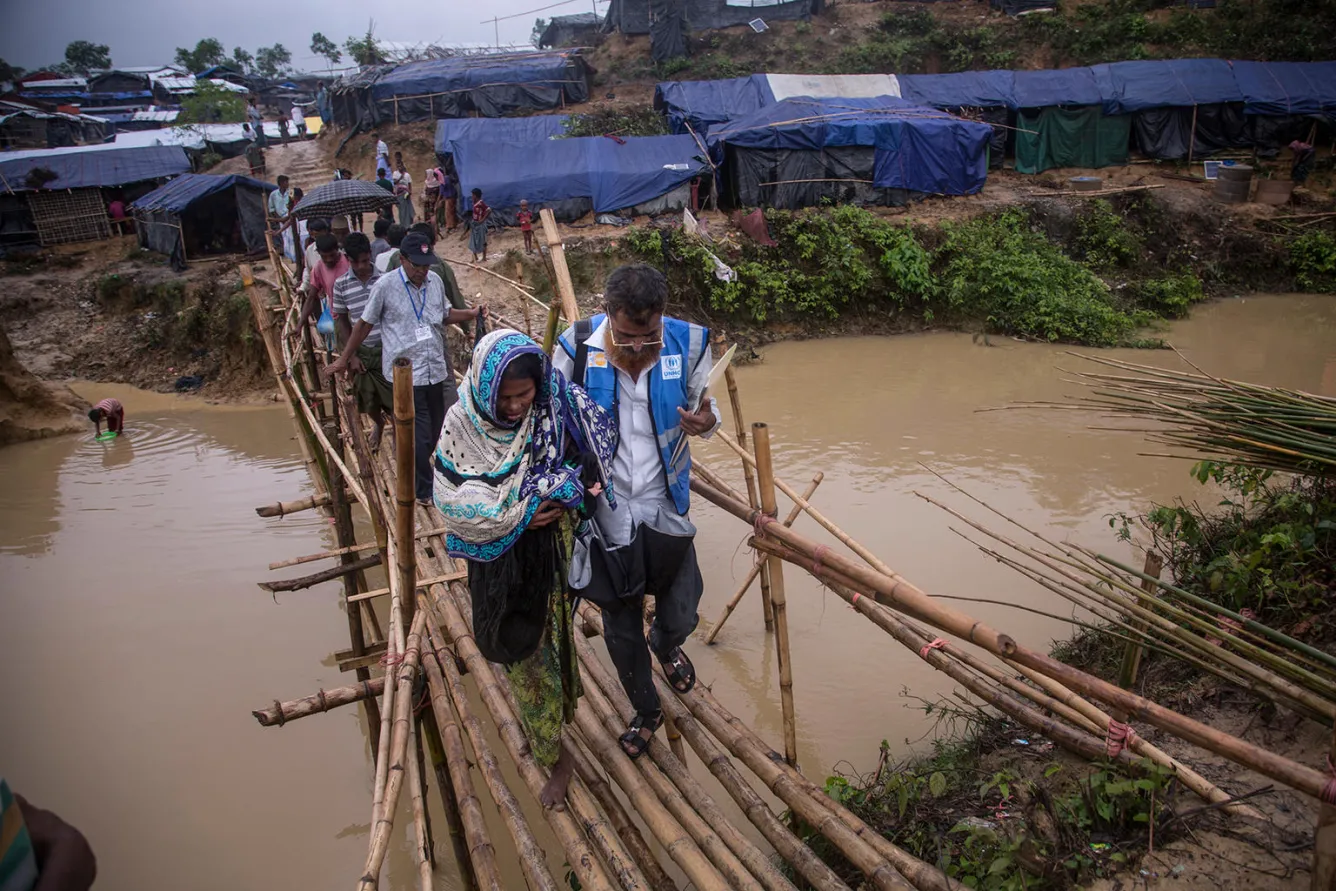
Kismat is being carried by her grandmother, Johora, who is following the two young men. But they are walking too fast, and Johora and Kismat end up lost. A volunteer health worker helps Johora try to get back to their shelter — one among thousands of nearly identical units in the vast camp.
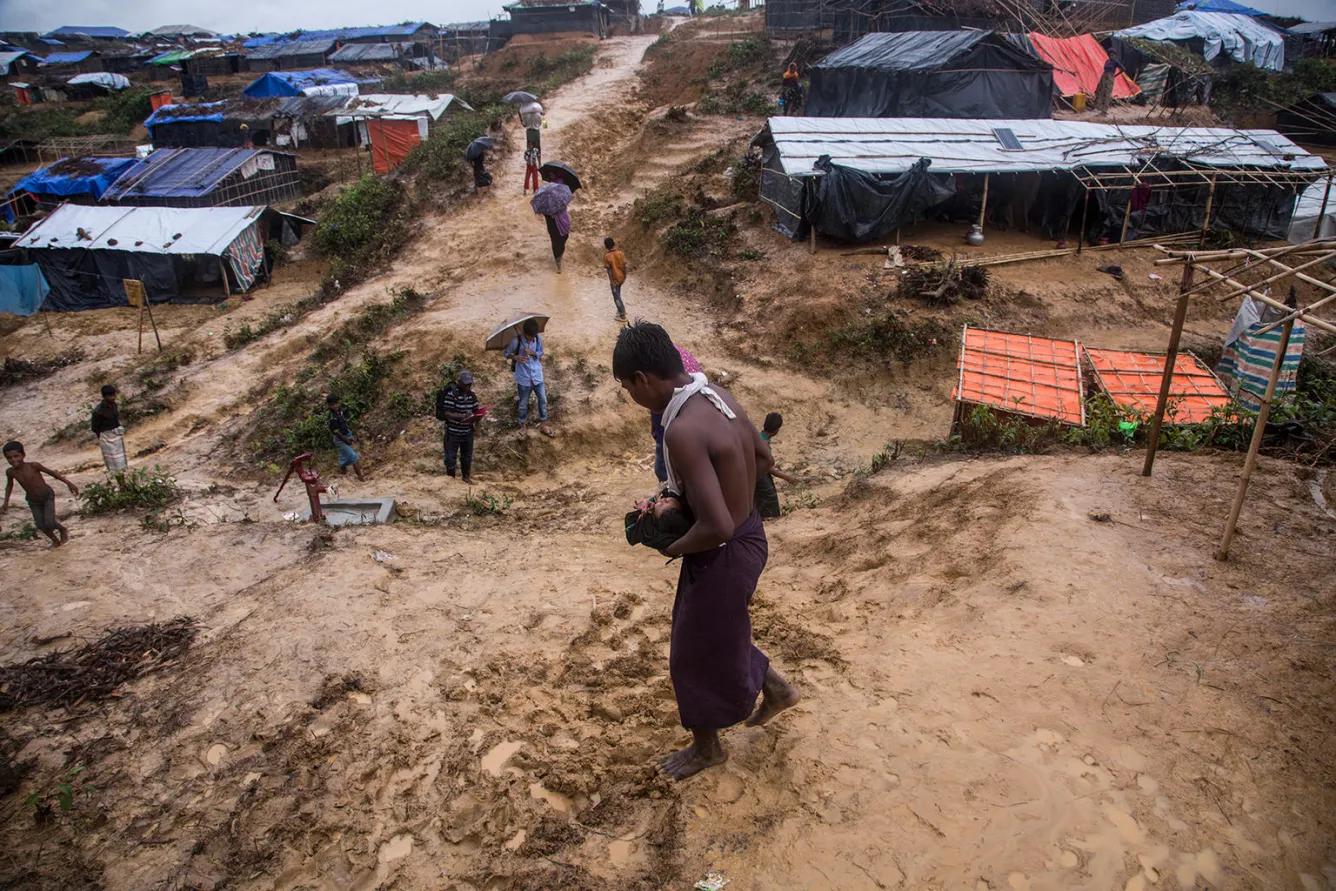
Hazera’s younger brother eventually finds the trio, who have been walking for kilometres — past countless sheds. Johora gives him Kismat — who is by now crying, hungry and cold. Carrying his niece, the young man leads the way back to the family’s tent shed, which is still a quite a distance away.
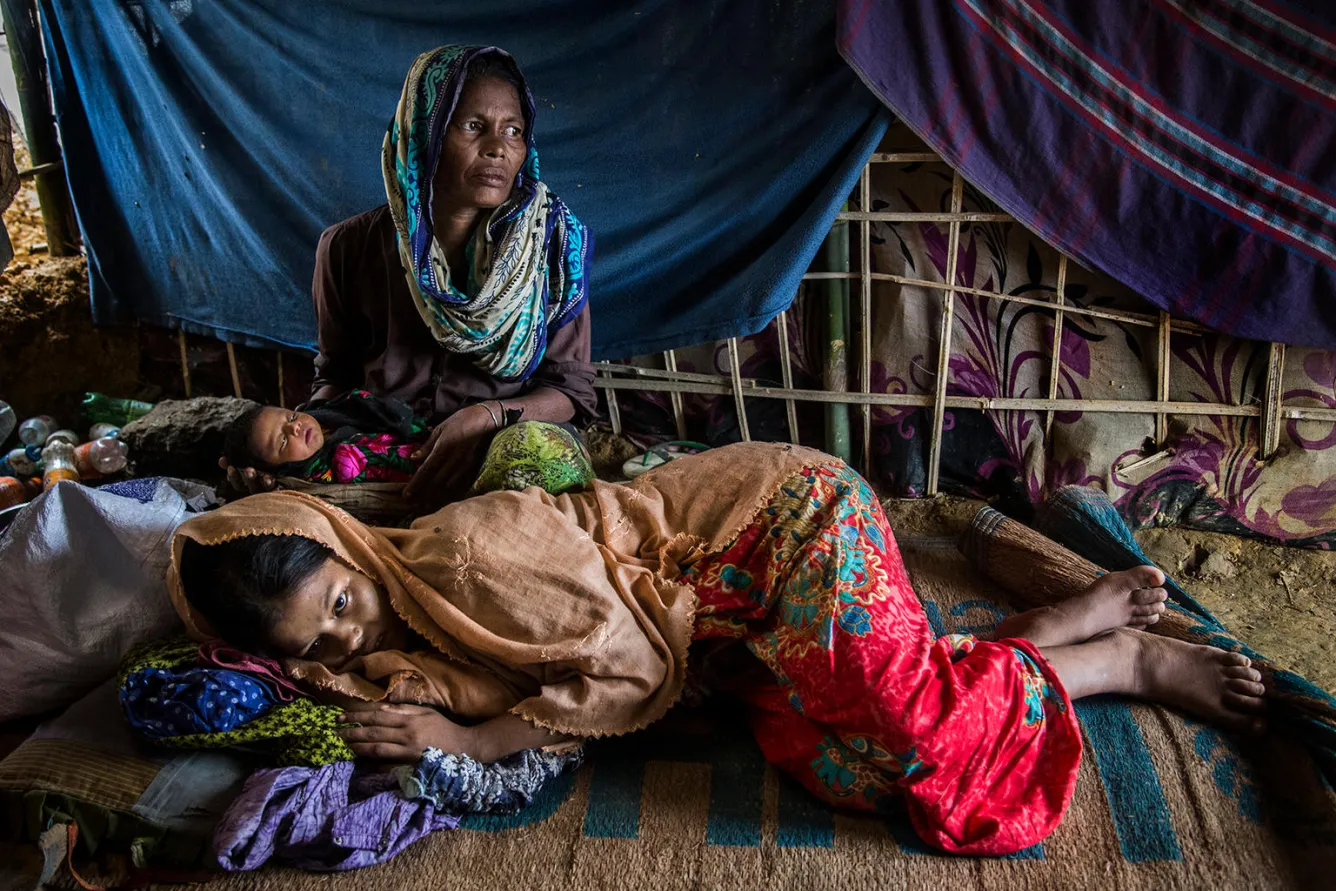
Johora has trekked nearly six kilometres with Kismat to get back to home, where Hazera has been waiting anxiously for her baby’s return. Back safely with her mother and finally fed, Kismat sleeps in her grandmother’s lap. Her mother, still in pain, lies dazed beside them after the terrifying ordeal.
